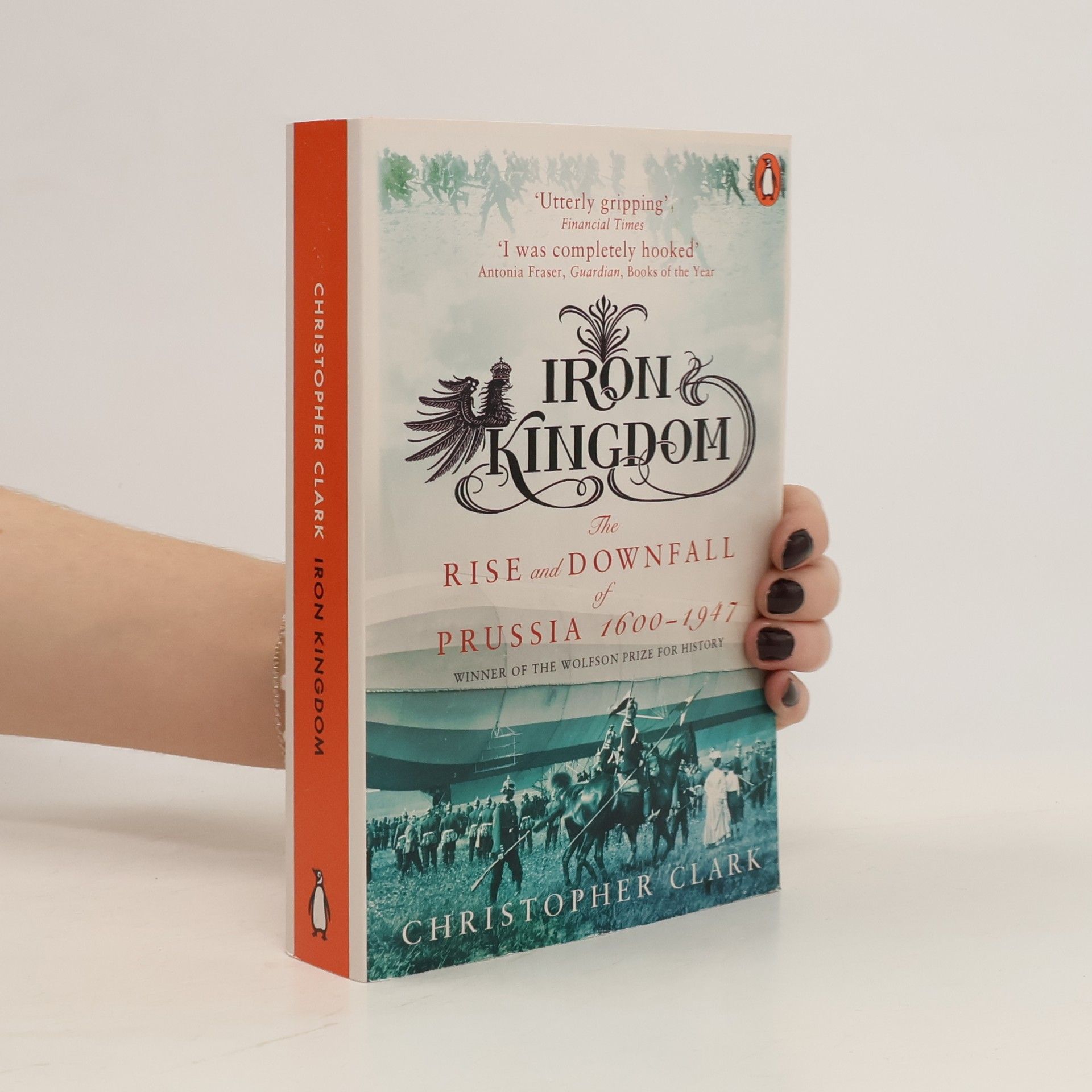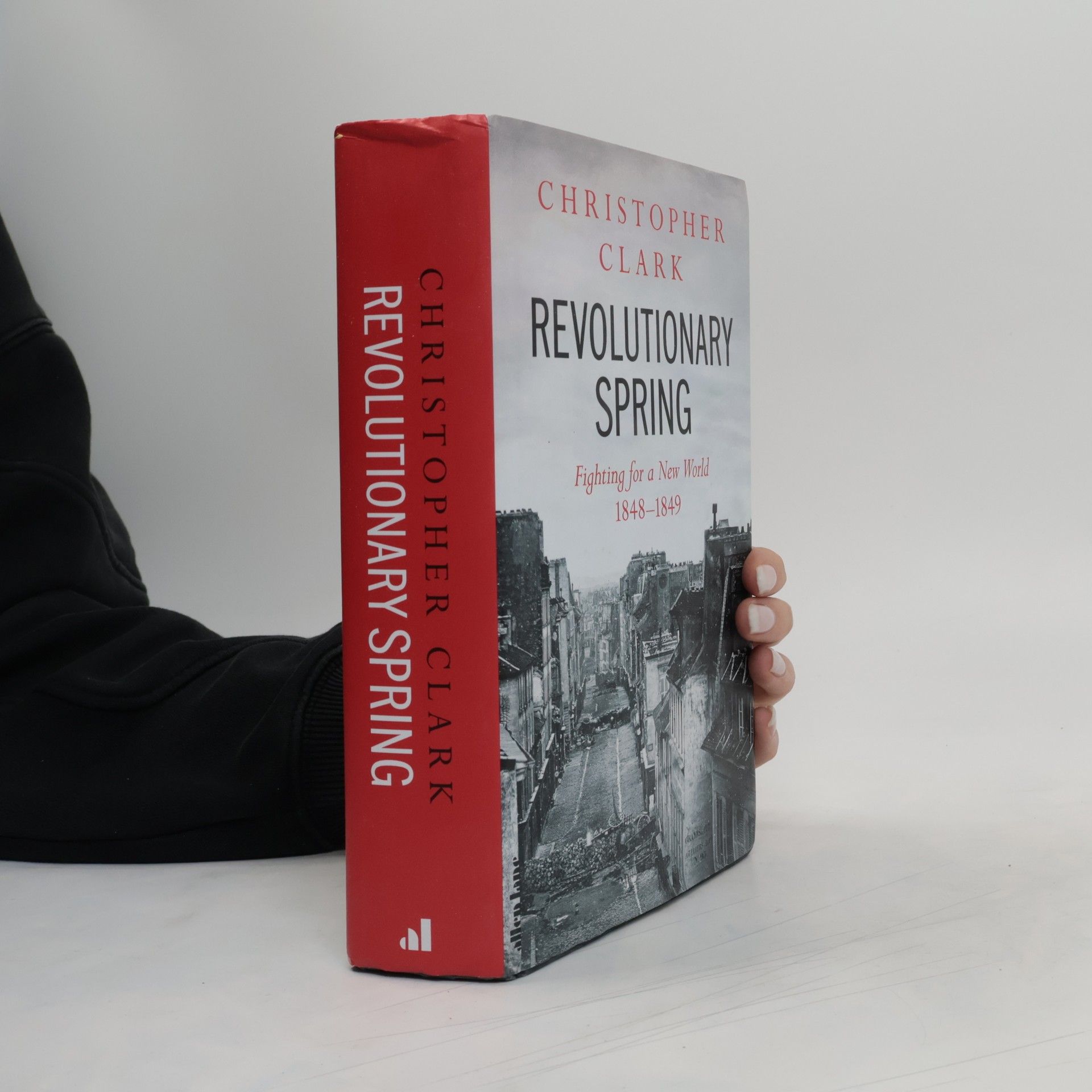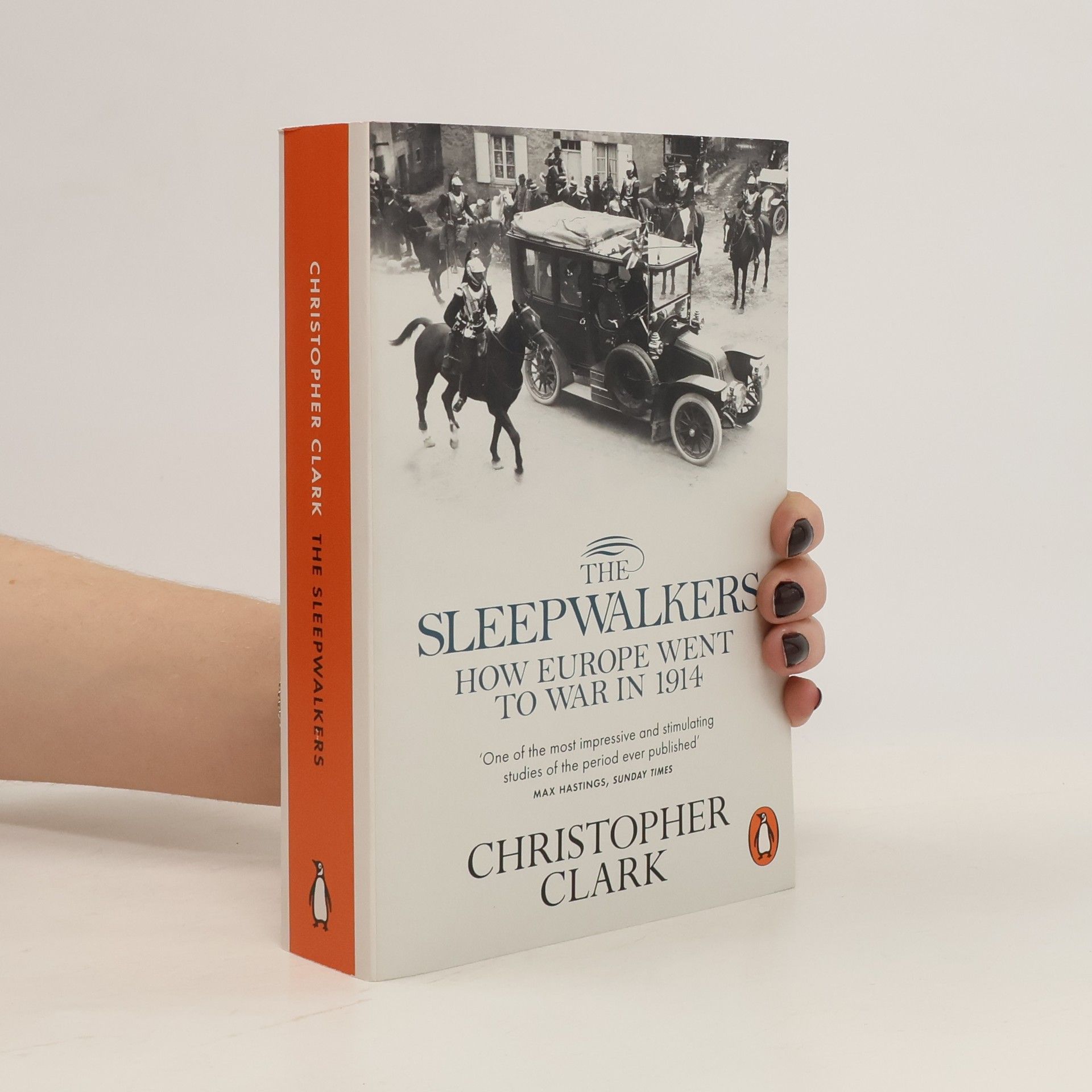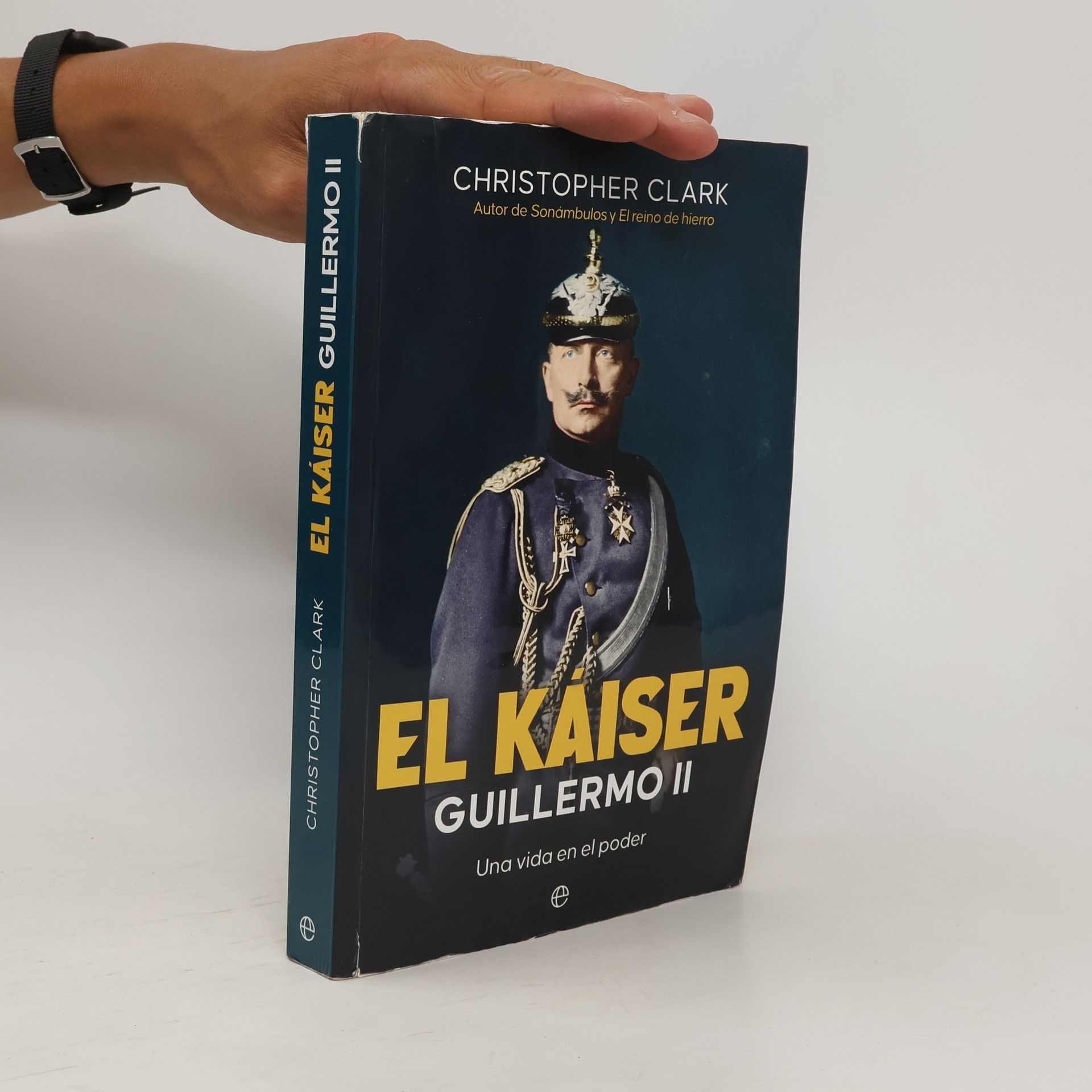Al final de la Primera Guerra Mundial, el emperador de Alemania fue denostado como un perturbado y un tirano sediento de sangre que había conducido a Europa al desastre. Sin embargo, durante treinta años de reinado fue ensalzado, y para millones de personas había encarnado la idea de una nación moderna, dinámica y poderosa.El pormenorizado análisis de Clark descodifica a un líder y un hombre de su tiempo, ni héroe ni villano, ambicioso en el ejercicio del poder, pero dubitativo y ambivalente, sin un programa político coherente, temeroso de la guerra y constreñido por otras fuerzas políticas, cuando no opacado por caudillos como Otto von Bismarck o Paul von Hindenburg --
Christopher Clark Libros
Este historiador australiano se especializa en historia europea moderna, con base en la prestigiosa Universidad de Cambridge. Su trabajo profundiza en las complejas relaciones entre naciones y la configuración de la identidad europea. Clark examina cómo los eventos históricos y las fuerzas políticas forjan el mundo contemporáneo, ofreciendo profundas perspectivas sobre el desarrollo del continente. Su escritura es valorada por su profundidad y su capacidad para aportar nuevas perspectivas a momentos históricos cruciales.







The Sleepwalkers
How Europe Went To War In 1914
In 'The Sleepwalkers' acclaimed historian and author of 'Iron Kingdom', Christopher Clark, examines the causes of the First World War. The moments that it took Gavrilo Princip to step forward to the stalled car and shoot dead Franz Ferdinand and his wife were perhaps the most fateful of the modern era.
'People embraced each other, shook hands, joy radiated from every eye, there was no limit to the celebrations . . .' There can be few more exciting or frightening moments in European history than the spring of 1848. Almost as if by magic, in city after city, from Palermo to Paris to Venice, huge crowds gathered, sometimes peaceful and sometimes violent, and the political order that had held sway since the defeat of Napoleon simply collapsed. Christopher Clark's spectacular new book recreates with verve, wit and insight this extraordinary period. Some rulers gave up at once, others fought bitterly, but everywhere new politicians, beliefs and expectations surged forward. The role of women in society, the end of slavery, the right to work, national independence and the final emancipation of the Jews all became live issues. In a brilliant series of set-pieces, Clark conjures up both this ferment of new ideas and then the increasingly ruthless and effective series of counter-attacks launched by regimes who still turned out to have many cards to play. But even in defeat, exiles spread the ideas of 1848 around the world and - for better and sometimes much worse - a new and very different Europe emerged from the wreckage.
'Of the "Great Powers" that dominated Europe from the eighteenth to the twentieth centuries, Prussia is the only one to have vanished � Iron Kingdom is not just good: it is everything a history book ought to be � The nemesis of Prussia has cast such a long shadow that German historians have tiptoed around the subject. Thus it was left to an Englishman to write what is surely the best history of Prussia in any language' Sunday Telegraph
An intellectual tour de force: the major essays of the esteemed author of international bestseller The Sleepwalkers Christopher Clark's The Sleepwalkers has become one of the most influential history books of our century: a remarkable rethinking of the origins of the First World War, which has had a huge impact on how we see both the past and the present. For the many readers who found the narrative voice, craftsmanship and originality of Clark's writing so compelling, Prisoners of Time will be a book filled with surprises and enjoyment. Bringing together many of Clark's major essays, Prisoners of Time raises a host of questions about how we think about the past, and both the value and pitfalls of history as a discipline. The book includes brilliant writing on German subjects: from assessments of Kaiser Wilhelm and Bismarck to the painful story of General von Blaskowitz, a traditional Prussian military man who accommodated himself to the horrors of the Third Reich. There is a fascinating essay on attempts to convert Prussian Jews to Christianity, and insights into everything from Brexit to the significance of battles. Perhaps the most important piece in the book is 'The Dream of Nebuchadnezzar', a virtuoso meditation on the nature of political power down the ages, which will become essential reading for anyone drawn to the meaning of history.
Inspired by the insights of Reinhart Koselleck and François Hartog, two pioneers of the "temporal turn" in historiography, Clark shows how Friedrich Wilhelm rejected the notion of continuity with the past, believing instead that a sovereign must liberate the state from the entanglements of tradition to choose freely among different possible futures. He demonstrates how Frederick the Great abandoned this paradigm for a neoclassical vision of history in which sovereign and state transcend time altogether, and how Bismarck believed that the statesman's duty was to preserve the timeless permanence of the state amid the torrent of historical change. Clark describes how Hitler did not seek to revolutionize history like Stalin and Mussolini, but instead sought to evade history altogether, emphasizing timeless racial archetypes and a prophetically foretold future.
Kaiser Wilhelm II
- 288 páginas
- 11 horas de lectura
Focusing on Kaiser Wilhelm II's political career, the book traces his journey from youth at the Hohenzollern court to his reign as German Emperor and King of Prussia until 1918. It explores the complexities of his leadership during the Wilhelmine era, his role in the events leading to World War I, and the consequences of his forty-year rule on Germany. This new interpretation sheds light on the controversial monarch's influence and the historical context of his time.
A realm of gilded thrones. A land of tarnished dreams. One world, with two sides. The fate of seven kingdoms is at stake during an epic card game. A runner flees her broken marriage and barrels straight into her high school reunion. A housebroken husband trades his beloved beagle for a sad, gray donkey. And a brother and sister chase a ghost down a long and lonesome highway into their haunted forest of their past. Young men and the difficult women who save them, old men and the dream girls who keep them up at night-join these eight heroes in unearthing the startling truth of what rests Under the World. Will they like what they find there? Will they even be able look it in the eye? And how about you? Under the World is the second book in The Fabulous & The Mundane, a series of short story collections by E. Christopher Clark. If death frightens you, but an unfulfilled life frightens you even more; if you like a good fairy tale as much as you love spine-tingling suspense, then you'll love this genre-bending union of fantasy and reality. Buy Under the World and start exploring today!
Are you constantly beating yourself up because of difficulties you face in life? Do obstacles get in the way of your happiness? Discover The Transformative Powers That Self-Compassion Workbook Can Bring To Your Confidence and Feelings of Self-Worth Today!
The series provides drawing, coloring, matching and other creative tasks to help young students learn English. All the activities have been carefully designed to practice English grammar and vocabulary, and to develop important reading and writing skills. The activities are all attractively illustrated. The Activity Books are accompanied by two sets of Language Learning Cards. These are picture, word, letter and number cards designed to practice the vocabulary in the Activity Books.

